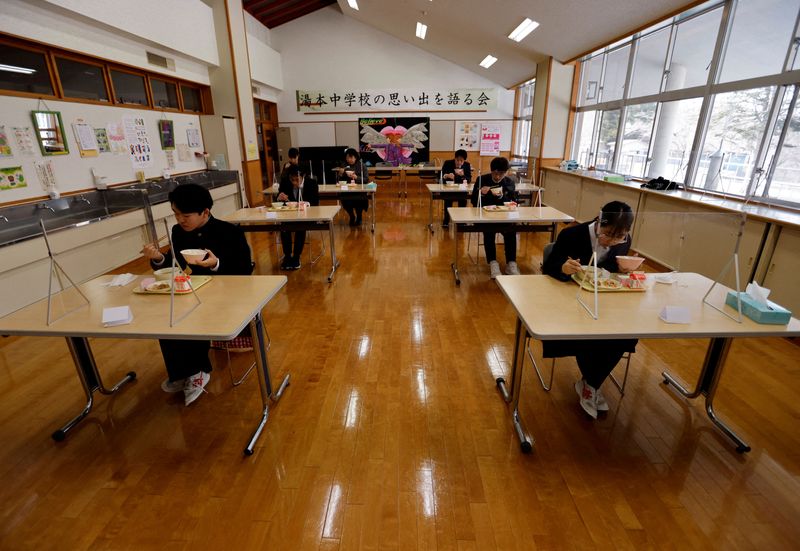By Tim Kelly
TOKYO (Reuters) - More than nine out of 10 Japanese firms feel a sense of crisis about the country's accelerating birthrate decline, with few hopeful that Prime Minister Fumio Kishida's government can arrest the fall, according to a Reuters monthly poll.
Kishida unveiled a plan in March to reverse the birthrate trend, a problem that has worsened under successive Liberal Democratic Party (LDP) administrations, threatening to further shrink the country's workforce and sap consumer demand.
Those measures, which include expanding child allowance provisions, increasing paid parental leave and providing subsidies for fertility treatments came after the government revealed that annual births last year had dipped below 800,000 for the first time, eight years earlier than expected.
Of nearly 500 major companies surveyed by Reuters, 94% said they felt a sense of crisis when asked about the fall in annual births in 2022. Only 14% of firms said they were hopeful that Kishida's measures would work, with 34% saying they would not. The remaining companies that responded, did not express a view.
"The LDP response is about securing votes, it is not seriously tackling the problem," a representative from a transport machinery company said, on condition the company wasn't identified.
Like other major industrial economies, Japan is raising the retirement age and encouraging more women to work as its population ages. Unlike some countries, however, it has not sought out large numbers of foreign workers to fill its job vacancies.
"We need to develop overseas markets and also have to make use of foreign workers," a representative from a food maker said.
At 49, Japan's median age is second only to the city state of Monaco and it is one of the most expensive places in the world to raise a child.
Kishida's administration has said it will release the details next month of how it will fund a birthrate initiative that is expected to double government spending on childcare.
In the Reuters poll, 54% of companies said they wanted the government to increase taxes to pay for the increased spending, of which just under a half said they wanted a hike in the sales tax paid by consumers. Only 18% of firms urged an increase in government borrowing.
The Reuters Corporate Survey, conducted for Reuters by Nikkei Research between May 10 and May 19, canvassed 493 big non-financial Japanese firms, including 246 manufacturers and 247 non-manufacturers.

They were polled on condition of anonymity, allowing respondents to speak more freely.
Click here for a more detailed breakdown of the poll results.